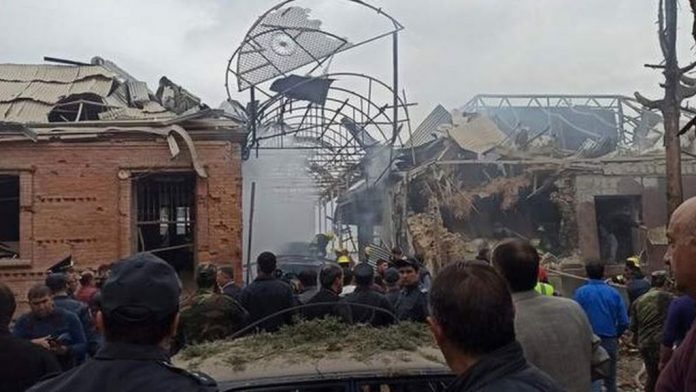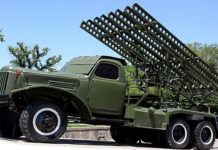Russia is considering an Iranian proposal for ending the conflict between Azerbaijan and ethnic Armenian forces in the mountain enclave of Nagorno-Karabakh after three ceasefires failed to halt fighting that is now in its sixth week, Reuters reported.
Interfax news agency quoted deputy Russian foreign minister Andrei Rudenko as saying Iran’s proposal was made by deputy foreign minister Abbas Abaqchi during a visit to Moscow last week, but gave no details.
“We’re looking carefully at it,” Rudenko told journalists.
At least 1,000 people, and possibly many more, have been killed since fighting broke out on Sept. 27 in Nagorno-Karabakh, an enclave internationally recognised as part of Azerbaijan but populated and controlled by ethnic Armenians.
The worst fighting in more than 25 years has underlined the influence of Turkey, an ally of Azerbaijan, in the South Caucasus, a region that was once part of the Soviet Union and long dominated by Moscow, which has a defence pact with Armenia.
Russian news agencies reported last week that Iran had proposed a leading role in peace negotiations for countries in the region. Russia, it said, would be one of these countries.
Negotiations have for decades been led by Russia, France and the United States in their roles as co-chairs of a panel known as the Minsk Group of the Organization for Security and Co-operation in Europe (OSCE), a security and rights watchdog.
Within hours of an agreement being reached with the warring sides on Friday not to target civilians, attacks resumed, and concerns remain about the security of oil and gas pipelines in Azerbaijan.
Advances on the battlefield have reduced Azerbaijan’s incentive to reach a lasting peace deal and complicated international efforts to broker a ceasefire – in which Turkey wants a bigger role.
Russian Foreign Minister Sergei Lavrov said Moscow would continue working with Turkey to stop the military confrontation in Nagorno-Karabakh from escalating.
In an interview with Russian daily Kommersant, Lavrov also estimated around 2,000 mercenaries from the Middle East were fighting and called on “external players” to halt their arrival.












